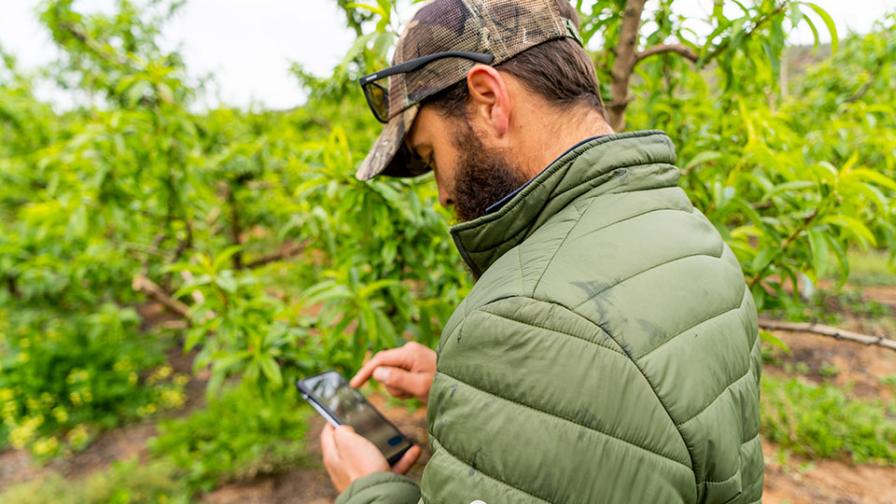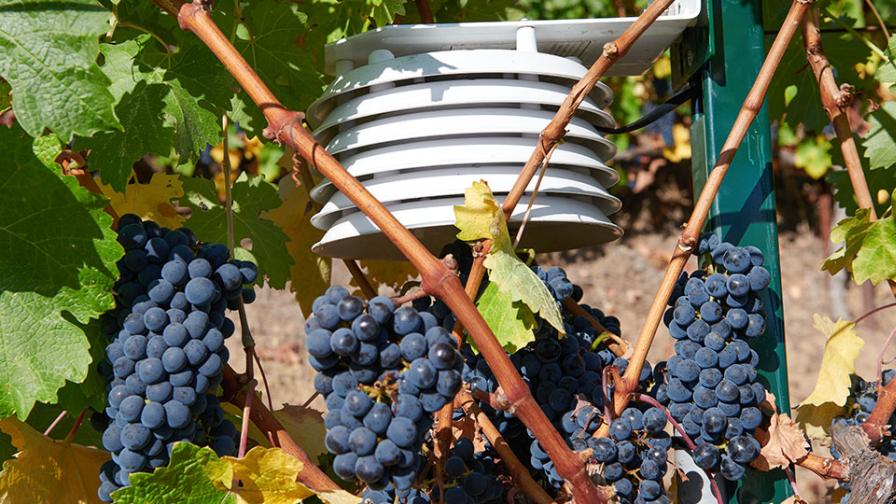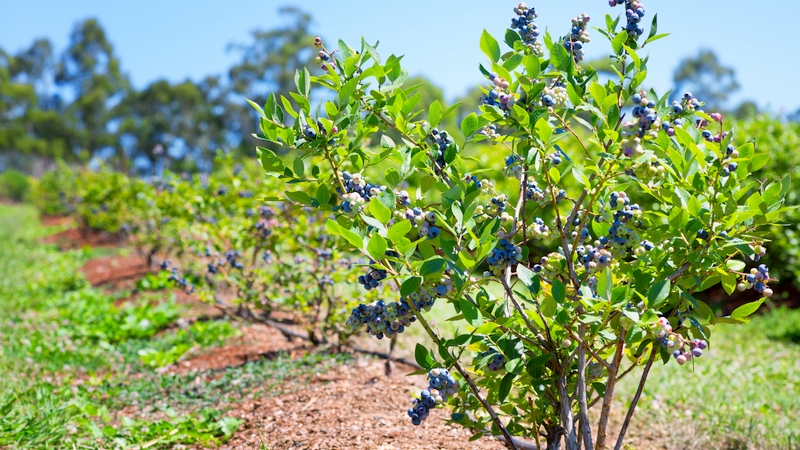Get Your Farm Into the Flow With These New Irrigation Products
Irrigation companies across the country continue to evolve.
Growers will be pleased to discover the following new developments within the industry:
WiseConn USA — The company’s main goal, according to Marketing Director Mark Yoshimoto, is to maintain agriculture sustainability through reduction of water and energy while maximizing yields. Its RF-X1 data logger and controller is an all-in-one unit that connects to any sensor in the field while utilizing full control of an irrigation system. The unit allows the grower to accurately apply the correct amount of water and fertilizer through an easy-to-use app.
“WiseConn growers continuously demonstrate savings of 40% in water and energy savings with an average ROI in one to three years,” Yoshimoto says.
In the pipeline at WiseConn are several developments that will allow growers to accomplish efficient water management.
“The main feature we are integrating to our platform are third-party recommendation systems that provide the first autonomous irrigation automation system in the world,” Yoshimoto says. “This means the grower will decide what irrigation prescription system to use. There are several models, AI and machine learning companies out there, and more coming into the market. WiseConn is already connected to software in order to ’close the loop’ and automatically execute an irrigation provided by a service provider maximizing yield while reducing water, energy, and labor cost.”
Aerobotics — By using the company’s per-tree analytics, including tree health and canopy development, growers can get early warning signs that individual lines or valved sections of the irrigation system are experiencing issues, such as low pressure, blocked filters, or broken lines.
“Addressing problems as early as possible is key to reducing waste with a precious resource such as water,” Adam Andreini, General Manager, Central Valley Nuts, says.

Per-tree analytics available through Aerobotics gives growers early warning signs that individual lines or valved sections of the irrigation system are experiencing issues.
Photo courtesy of Aerobotics
To further maximize the potential of growers’ water usage, Aerobotics will be offering a new thermal imagery-based product that aims to ensure irrigation distribution uniformity is achieved. The product is currently in a live trial stage with key U.S. growers.
“By using our unique per-tree data capabilities, we are able to get highly accurate and actionable signals from the plants, detecting critical anomalies that need to be actioned on to reduce water usage while improving yield potential,” Andreini says.
Wilbur-Ellis Agribusiness — In 2020 the company launched a full irrigation scheduling business, Probe Schedule, to assist its growers with better irrigation management. The program, although very labor intensive, has shown tremendous success in Northern Sacramento Valley tree crops, according to Field Technology Manager Matt Maloney.
“Growers receive annual irrigation evaluations for each block along with weekly irrigation schedules that include soil moisture readings, SWP (soil water potential), and ETc (cumulative evapotranspiration) based on each representative block,” Maloney says. “At some point there will be a technology accurate and reliable enough to carry this out, but at this point good old-fashioned hard work has been the most trusted source for irrigation schedules.”
Amiad Water Systems — In recent years, the company has introduced a range of low-cost automatic filters under the name Mini Sigma. The automatic screen filters have been accepted well, according to Director of Marketing Roy Israeli, as they offered a cost-effective alternative to growers who are wishing to enjoy the benefits of automatic filtration.
“In combination with the Amiad range of smart controllers, we will be able to offer in the near future a new level of real-time connectivity of its filters, providing growers insights and recommendations that will enable them to better handle the filtration process, saving precious time and energy as a result,” Israeli says.
WaterPoint — Manager of Business Development Bill Terry recommends adhering to the company’s trademarked DIRT program — Dynamic Irrigation Recommendation Technologies. The three-step process implements whichever technologies growers can get their hands on, he says.
WaterPoint has vetted and highly recommends:
• Flow-Tech Grow (electronic water treatment)
• WiseConn Drop Control (remote pump and valve automation)
• PESSL/iMetos (soil moisture monitoring and ET weather stations)
• Nelson TWIG (remote valve automation)
• Sentek (soil moisture probes)
• Enviroscan (soil moisture probes)
• Davis (ET weather stations)
Ceres Imaging — The company is always refining its analytics products to help growers make the most strategic use of their resources, according to Vice President of Marketing John Bourne. For example, its Cumulative Stress Index provides a scorecard of total orchard health, revealing where yield may be most impacted by stress. “Using the index to identify the most vulnerable areas of the operation helps our customers make strategic investments that protect the long-term health of their business,” Bourne says.
Semios — Cutting way back on water usage will involve more than just the way growers irrigate, according to Technical Irrigation Specialist Ben Smith. However, Semios can help in determining what changes to make and how to execute them best.
“Evapotranspiration and soil moisture are common to most platforms, but we are actively implementing multiple additional sensors that will drive new insights that will aid in making better decisions under difficult situations, such as dealing with drought, and how to more consistently get the highest quality crops year after year,” Smith says.
Phytech — Saving water and optimizing production lies at the heart of the company’s solution, according to Marketing Director Amir Lin.
“We allow this by monitoring tree status and water-demand in real time. In addition, we give growers enhanced visibility of their irrigation system performance, including pressure alerts, which further assists in saving water,” Lin says. “Finally, we are already deploying a fully automated solution, which is also important for water savings, as the system executes seamlessly the irrigation plans and Phytech recommendations and avoids over irrigation or human errors that might lead to inefficient irrigation.”
Ranch Systems — Use of the company’s hardware, third-party sensors of the growers’ choosing, and the company’s myRanch irrigation scheduler will aid growers in optimizing their use of the water they have available, according to Director of Business Development and Marketing Hylon Kaufmann.

Ranch Systems field devices are tightly integrated with a web platform and mobile app to give growers the tools to interpret probe data and set thresholds for the start and end of irrigation.
Photo courtesy of Ranch Systems
“Our field devices are tightly integrated with our web platform and mobile app myRanch, which gives growers the tools to interpret the probe data and set thresholds for start and end of irrigation. Utilizing data from the micro-climate weather stations that we provide, growers can refine the calculated ETo (evapotranspiration) and ETc (cumulative evapotranspiration) based on commonly utilized models. Our recently updated scheduler utilizes the data with an optimization algorithm that calculates the most efficient run times and water quantities for a specific irrigation set. Our field devices can also connect to flow meters, tanks, and wells to control and measure the use of water, all via the same web platform and mobile app.”
Rivulis USA — The company offers ultra-low flow tape, emitters, and sprinklers, as well as drippers and foggers, that can help reduce water usage.










